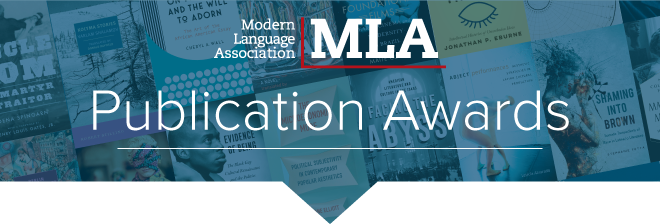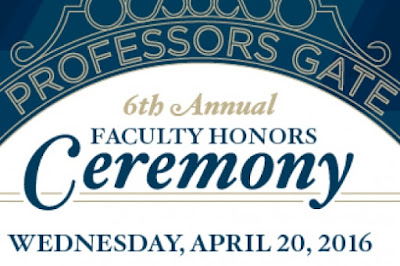Global Shakespeares Symposium, a Recap
Global Shakespeares Symposium, a Recap
 As the title suggests, Joubin argues for global Shakespeares as a methodology. “From a scholarly point of view, the archival silence constitutes productive negative evidence in the archeological and anthropological sense. Archival silence is useful because it compels us to rethink our criteria and frame of reference.” She added, “The absence of a coherent, constructed Shakespeare tradition in a certain place does not mean that there are no local engagements with Shakespeare.” Continuing with the concept of localized global Shakespeare, she continued: “Global Shakespeare, in fact, reveals how intensely local all performances are. The ideological encodings of all performances, including Anglo-American ones, should be studied within, rather than in isolation from, this global context.” Joubin concluded that “the field of global Shakespeares may never have one single theory that all critics agree upon because publications about global Shakespeares emphasize different aspects for different cultural worlds and for different audiences.”
As the title suggests, Joubin argues for global Shakespeares as a methodology. “From a scholarly point of view, the archival silence constitutes productive negative evidence in the archeological and anthropological sense. Archival silence is useful because it compels us to rethink our criteria and frame of reference.” She added, “The absence of a coherent, constructed Shakespeare tradition in a certain place does not mean that there are no local engagements with Shakespeare.” Continuing with the concept of localized global Shakespeare, she continued: “Global Shakespeare, in fact, reveals how intensely local all performances are. The ideological encodings of all performances, including Anglo-American ones, should be studied within, rather than in isolation from, this global context.” Joubin concluded that “the field of global Shakespeares may never have one single theory that all critics agree upon because publications about global Shakespeares emphasize different aspects for different cultural worlds and for different audiences.”Eric Johnson (Folger Library), “Shakespeare’s Digital Global Marketplace”
Most of Johnson’s fascinating analysis involved how various users from around the globe interacted and searched Open Source Shakespeare. As he stated in his paper abstract: “This data will include web page view counts, as well search datafrom Open Source Shakespeare (for example, “Most Searched Keywords” and “Most Searched Works”). This data collection will give an idea of which countries are most interested in Shakespeare, relative to the rest of the world. It will also show which countries are underrepresented in the “market,” and thus represent potential growth areas for Shakespearean pedagogy and scholarship. This paper will pay particular attention to why developing countries with large English-speaking populations, particularly India, do not seem to make as much use of Shakespearean resources as might be expected.”
Christy Desmet (University of Georgia), “The Art of Curation: Searching for Global Shakespeares in the Digital Archives”
Desmet contrasted three heavily curated digital archives devoted to global Shakespeares (Bardbox (now defunct), CASP (Canadian Adaptations of Shakespeare Project); and the Global Shakespeares Video & Performance Archive (MIT) with the more anarchic YouTube (described as both a “wild archive” and an “insane collection”).
Q and A: There was some discussion of the pharmacological and pathological metaphors that several of the papers deployed in reference to the archive. An unknown questioner made the observations that, as humanists, it was our role to “capture how incomprehensible things are.” There was a great deal of enthusiastic agreement. SATURDAY, JANUARY 25, 2014 Performing Global Shakespeares // Chair: Jeffrey CohenSujata Iyengar (University of Georgia), “Beds and Handkerchiefs: Moving Objects in International Othellos”
Iyengar’s talk consisted primarily of an analysis of three filmic adaptations of Othello: Kaliyattam (1997), a South Indian art film;Omkara (2006), a North Indian “Bollywood” movie, and Iago, an Italian teen adaptation. Most interesting was her methodological approach to the investigation of these global adaptations; because Iyengar purposely watched each film without subtitles (despite the fact that they were in languages she did not understand), she felt that she was able to pay close attention to the ways specific objects (particularly Desdemona’s famous handkerchief and the couple’s marriage bed) exert agency within their respective narratives. Drawing heavily on Jane Bennett’s Vibrant Matter, she looked at the way objects served within each of films as agentive actors capable of influencing a contingent network comprised of both human and nonhuman elements. Much of her talk also engaged with Bennett’s notion of “distributive blame” in which causality is seen to exist not as a matter of individual agency but rather as a broadly-distributed set of circumstances spread throughout a network, all of which contribute to a particular action or event.
Tom Cartelli (Muhlenberg College), “‘High-Tech Shakespeare in a Mediatized Globe”
Cartelli analyzed Ivo van Hove’s The Roman Tragedies, a sustained, single-set production of Coriolanus, Julius Caesar, andAntony and Cleopatra. He concentrated on the highly mediatized, experimental nature of the production, in which audience members were permitted to sit on stage in front of a host of video monitors and encouraged to engage with social media as the narrative unfolded around them. Cartelli explained, “The Roman Tragedies may also demonstrate the extent to which serious theatrical practice has become colonized by the entertainment industry, the marriage of global media, political and economic elites, and celebrity culture.” While Cartelli praised much about the production, so too did he express misgivings regarding the way that theatre is made to occupy the role of “society’s secretary,” simply recording the social problems that surround us. Cartelli concluded, “Instead of intervening in some decisive way in the corporate mediatized dominance of political culture, this production merely represents it, in the process effectively serving as its enabler.”
Adele Seeff (University of Maryland), “Race, Post-Race, Shakespeare, and South Africa”
Seeff’s analysis considered two South African versions of Macbeth: the mini-series Entabeni and Death of a Queen. Seeff argued, “The broadcaster’s mandate in South African, like the African storyteller, is to educate and inform….Shakespeare is decidedly neither Africa’s contemporary nor Africa’s kinsman, but in these renditions, Shakespeare’s play is refashioned as relevant and accessible to a temporally and geographically distant location through a process of cultural translation and the adoption of a particular poetics that allows the text to speak ideologically yet again. These programs speak in several directions at once. They call attention to South Africa’s recent past, the advent of democracy, and they offer a utopian vision of equality, the eradication of race as a category, and the establishment of a rainbow nation. But they also remind the careful viewer in dystopic ways that old inequalities persist.”
Julie Taymor’s Shakespeare in the Global Marketplace // Chair: Ayanna Thompson
Ayanna Thompson in conversation with Julie Taymor and Harry Lennix
In terms of its broad structure, the conversation moved from Titus to The Tempest to Midsummer Night’s Dream. Since Taymor had directed both Titus and The Tempest on stage before directing them as films, she discussed how she negotiated the transfer between mediums while still adhering to the spirit of her earlier stage version. She noted that she would not want to direct Shakespeare on film without first working it up as a stage production. The talk began also with a discussion of marketing and how difficult it is to get major studios to back Shakespeare on film.
 Taymor recounted a conversation she had with Djimon Hounsou (Cailiban in her Tempest) regarding his comfort with Helen Mirren as Prospera: “I said ‘How do you feel about Prospera being a mid-60s English white lady? Um…how does that…how…how will you play this part with that?’ He said, ‘Well, in my country [Benin], all the women have the power, and in my country the only sorcerers who have the power are the women, and so, for me, I believe in that completely.’”
Taymor recounted a conversation she had with Djimon Hounsou (Cailiban in her Tempest) regarding his comfort with Helen Mirren as Prospera: “I said ‘How do you feel about Prospera being a mid-60s English white lady? Um…how does that…how…how will you play this part with that?’ He said, ‘Well, in my country [Benin], all the women have the power, and in my country the only sorcerers who have the power are the women, and so, for me, I believe in that completely.’”









